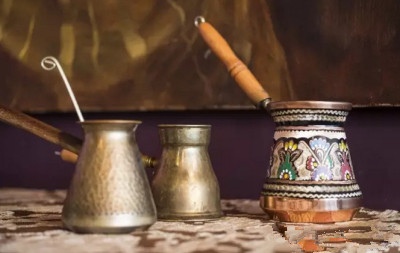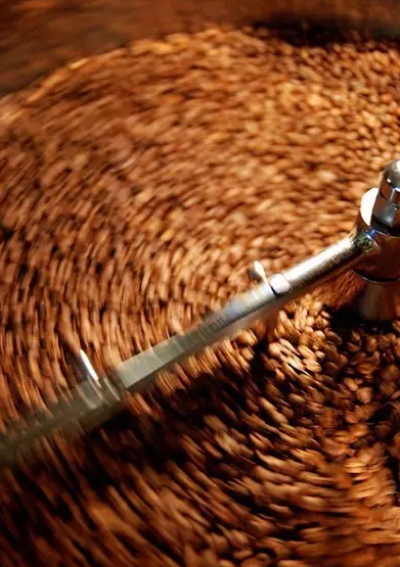Turkish coffee spice coffee regional flavor coffee extract coffee Turkish coffee pot
Coffee, Loyalty and Love
It didn't take long for coffee to become the drink of the Ottoman sultans, the rulers of the Turkish royal family. The commissioner who made the coffee for the sultans was called Kahveci Usta, and once it was made, 40 guards presented the sacred drink to the supreme sultan.
Coffee was a symbol of loyalty to the sultan. Similarly, Turkish men offer coffee to their wives when they get married, and women judge whether a man cares about her according to the quality of the coffee.
As coffee spreads throughout Turkey, it's no longer just a key test for brides. Brides-to-be must also express their satisfaction with their man. If the groom's coffee is sweet, the bride-to-be is satisfied; if it is bitter, the bride-to-be is not satisfied.
Coffee quickly became Turkey's most popular drink. Wealthy families even build special rooms in their homes for coffee. This practice was later imitated and shared with others, and coffee shops were born. Coffee houses were important places for men to negotiate business and socialize. Of course, that doesn't mean women don't have a right to coffee. Turkish law at the time allowed women to drink coffee and gave wives the right to divorce if their husbands could not guarantee them coffee every day.
Coffee ban
But before long, coffee inexplicably bears the name of the devil. This may be due to the religion of the time. Because coffee is so popular, many people even give up church and waste their whole day drinking coffee and talking. For this reason, coffee went from holy to evil overnight.
The other reason was more political, as coffee was perceived by the rulers as an evil threat to the regime. Similarly, in Sweden, the ruling authorities passed laws banning coffee gatherings because coffee was considered a source of anti-government evil.
In 1656, Ottoman Prime Minister Koprulu issued a ban on all coffee-related activities, and violations were punishable by death. For first offense, the offender will be beaten; for second offense, the offender will be strapped and thrown into the river.
Coffee was retained by the Turks and spread to neighboring countries despite strict laws prohibiting it.
Coffee: The Plunder of War
Although coffee is widely spread, coffee historians believe that coffee's introduction into Europe began during a war. In 1683, when Turkish troops exchanged fire with Austrian troops, Turkish soldiers accidentally lost a bag of coffee during a withdrawal from Vienna, and this bag of coffee was discovered by the Austrians.
Back in real life, coffee as we know it is far less complicated than it is historically recorded. But at least now you know the origins of Turkish coffee and the mysterious legend behind it. Well, why don't you try a rich, steaming Turkish coffee

Important Notice :
前街咖啡 FrontStreet Coffee has moved to new addredd:
FrontStreet Coffee Address: 315,Donghua East Road,GuangZhou
Tel:020 38364473
- Prev

Requirements for milk foam refrigerated milk foam Italian blend of coffee beans milk foam
Milk foam element one: refrigerated milk is best refrigerated, about 5 degrees Celsius, the heat brought by the coffee machine steam can complete the formation of foam before the milk temperature goes up, on the contrary, the normal temperature is normal temperature milk, especially in summer, this makes the room for temperature rise is very limited, often in the steam shortly after the thermometer indicates 65 degrees. Milk foam factor 2: the amount of milk is drawn in the coffee.
- Next

What is boutique coffee raw bean purchasers roast coffee beans definition of premium coffee
Only high-level planting techniques in line with the standard can produce high-quality coffee, including the grasp of microclimate, nursing care in the process of plant growth, picking techniques, raw bean processing technology and so on. Only when all links meet high standards and strict requirements, can the coffee produced be called high-quality. To this end, every grower must always bear in mind the production standards.
Related
- Beginners will see the "Coffee pull flower" guide!
- What is the difference between ice blog purified milk and ordinary milk coffee?
- Why is the Philippines the largest producer of crops in Liberia?
- For coffee extraction, should the fine powder be retained?
- How does extracted espresso fill pressed powder? How much strength does it take to press the powder?
- How to make jasmine cold extract coffee? Is the jasmine + latte good?
- Will this little toy really make the coffee taste better? How does Lily Drip affect coffee extraction?
- Will the action of slapping the filter cup also affect coffee extraction?
- What's the difference between powder-to-water ratio and powder-to-liquid ratio?
- What is the Ethiopian local species? What does it have to do with Heirloom native species?

